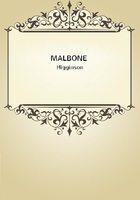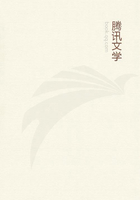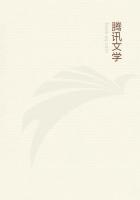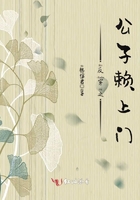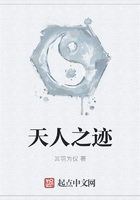The Christian Quiches of Guatemala believe that each of them has a beast as his friend and protector, just as in the Highlands "the dog is the friend of the Maclaines". When the Finns, in their epic poem the Kalewala, have killed a bear, they implore the animal to forgive them. "Oh, Ot-so," chant the singers, "be not angry that we come near thee. The bear, the honey-footed bear, was born in lands between sun and moon, and he died, not by men's hands, but of his own will." The Red Men of North America have a tradition showing how it is that the bear does not die, but, like Herodotus with the sacred stories of the Egyptian priests, Mr. Schoolcraft "cannot induce himself to write it out". It is a most curious fact that the natives of Australia tell a similar tale of THEIR"native bear". "He did not die" when attacked by men. In parts of Australia it is a great offence to skin the native bear, just as on a part of the west coast of Ireland, where seals are superstitiously regarded, the people cannot be bribed to skin them.
In New Caledonia, when a child tries to kill a lizard, the men warn him to "beware of killing his own ancestor". The Zulus spare to destroy a certain species of serpents, believed to be the spirits of kinsmen, as the great snake which appeared when Aeneas did sacrifice was held to be the ghost of Anchises. Mexican women
believed that children born during an eclipse turn into mice. In Australia the natives believe that the wild dog has the power of speech; whoever listens to him is petrified; and a certain spot is shown where "the wild dog spoke and turned the men into stone";
and the blacks run for their lives as soon as the dog begins to speak. What it said was "Bones".
Kalewala, in La Finlande, Leouzon Le Duc (1845), vol. ii. p.
100; cf. also the Introduction.
Schoolcraft, v. 420.
See similar ceremonies propitiatory of the bear in Jewett's Adventures among the Nootkas, Edinburgh, 1824.
Brough Smyth, i. 449.
J. J. Atkinson's MS.
Sahagun, ii. viii. 250; Bancroft, iii. 111. Compare stories of women who give birth to animals in Melusine, 1886, August-November.
The Batavians believe that women, when delivered of a child, are frequently delivered at the same time of a young crocodile as a twin. Hawkesworth's Voyages, iii. 756. Liebrecht, Zur Volkskunde, p. 17 et seq.
Brough Smyth, Aborigines of Victoria, i. 497.
These are minor examples of a form of opinion which is so strong that it is actually the chief constituent in savage society. That society, whether in Ashantee or Australia, in North America or South Africa, or North Asia or India, or among the wilder tribes of ancient Peru, is based on an institution generally called "totemism". This very extraordinary institution, whatever its origin, cannot have arisen except among men capable of conceiving kinship and all human relationships as existing between themselves and all animate and inanimate things. It is the rule, and not the exception, that savage societies are founded upon this belief. The political and social conduct of the backward races is regulated in such matters as blood-feud and marriage by theories of the actual kindred and connection by descent, or by old friendship, which men have in common with beasts, plants, the sun and moon, the stars, and even the wind and the rain. Now, in whatever way this belief in such relations to beasts and plants may have arisen, it undoubtedly testifies to a condition of mind in which no hard and fast line was drawn between man and animate and inanimate nature.
The discovery of the wide distribution of the social arrangements based on this belief is entirely due to Mr. J. F. M'Lennan, the author of Primitive Marriage. Mr. M'Lennan's essays ("The Worship of Plants and Animals," "Totems and Totemism") were published in the Fortnightly Review, 1869-71. Any follower in the footsteps of Mr. M'Lennan has it in his power to add a little evidence to that originally set forth, and perhaps to sift the somewhat uncritical authorities adduced.
See also Mr. Frazer's Totemism, and Golden Bough, with chapter on Totemism in Modern Mythology.
The name "Totemism" or "Totamism" was first applied at the end of the last century by Long to the Red Indian custom which acknowledges human kinship with animals. This institution had already been recognised among the Iroquois by Lafitau, and by other observers. As to the word "totem," Mr. Max Muller quotes an opinion that the interpreters, missionaries, Government inspectors, and others who apply the name totem to the Indian "family mark" must have been ignorant of the Indian languages, for there is in them no such word as totem. The right word, it appears, is otem; but as "totemism" has the advantage of possessing the ground, we prefer to say "totemism" rather than "otemism". The facts are the same, whatever name we give them. As Mr. Muller says himself, "every warrior has his crest, which is called his totem"; and he goes on to describe a totem of an Indian who died about 1793. We may now return to the consideration of "otemism" or totemism. We approach it rather as a fact in the science of mythology than as a stage in the evolution of the modern family system. For us totemism is interesting because it proves the existence of that savage mental attitude which assumes kindred and alliance between man and the things in the world. As will afterwards be seen, totemism has also left its mark on the mythologies of the civilised races. We shall examine the institution first as it is found in Australia, because the Australian form of totemism shows in the highest known degree the savage habit of confusing in a community of kinship men, stars, plants, beasts, the heavenly bodies, and the forces of Nature. When this has once been elucidated, a shorter notice of other totemistic races will serve our purpose.
Voyages and Travels, 1791.
Moeurs des Sauvages (1724), p. 461.
Academy, December 15, 1883.
Selected Essays (1881), ii. 376.
Compare Mr. Max Muller's Contributions to the Science of Mythology.

